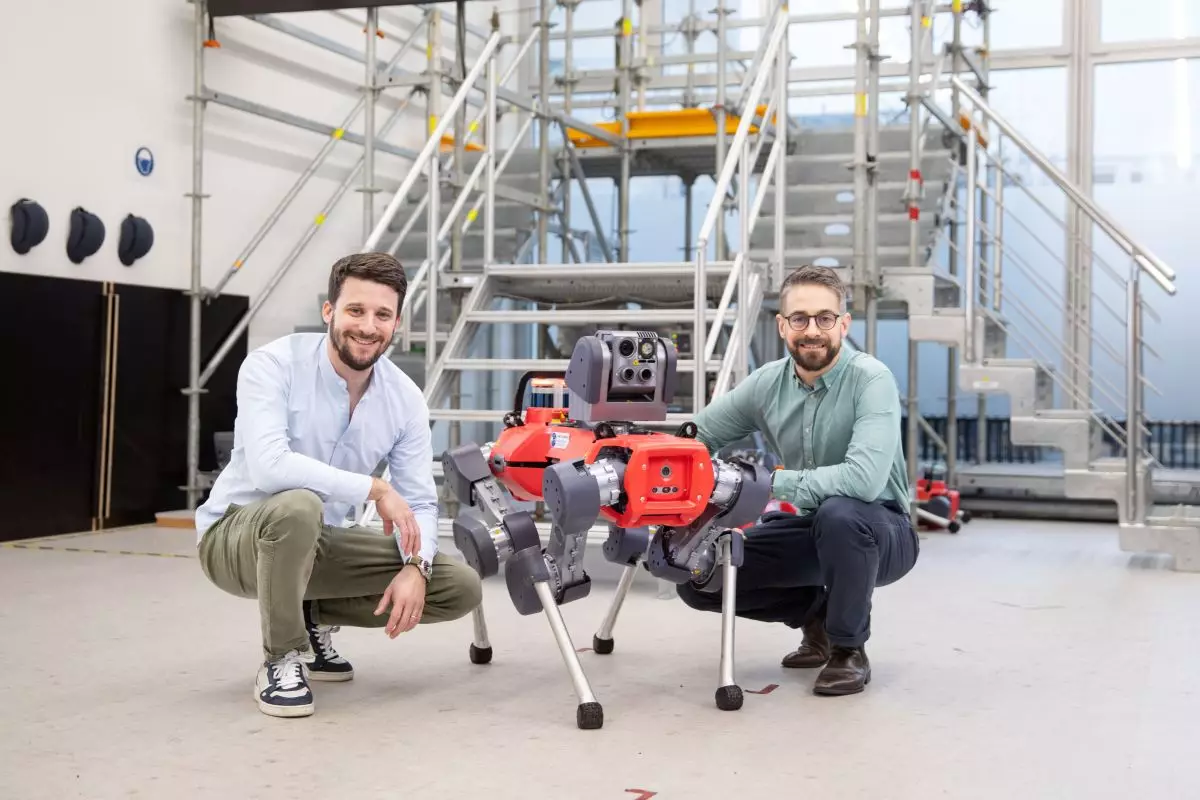Anybotics, a robotics enterprise that emerged from the prestigious ETH Zurich research university in 2016, has firmly positioned itself at the forefront of industrial automation. With a substantial infusion of $60 million, the company has successfully concluded its Series B funding round, raising a total of $110 million. This financial backing, which comes 18 months after an initial $50 million was announced, illustrates the growing confidence investors have in Anybotics and its innovative capabilities. The company’s flagship product, the quadrupedal inspection robot named Anymal, boasts an array of advanced sensors and cameras designed to monitor critical equipment in high-stakes industrial environments.
The industrial sector is fraught with challenges, particularly when it comes to conducting regular inspections in hazardous or complex settings. Dr. Péter Fankhauser, the CEO and co-founder of Anybotics, emphasizes how automation can mitigate risks associated with human exposure in challenging environments. By employing Anymal, businesses stand to benefit from a safety-first approach that also enhances operational efficiency. By integrating these robots into routine inspections, companies can detect thermal anomalies and monitor for combustible gases, which are vital for preemptive maintenance efforts.
With nearly 200 Anymal units deployed across sectors such as oil and gas, mining, and utilities, Anybotics has rapidly expanded its reach. Noteworthy clientele includes top-tier organizations like Novelis, Iamgold, and Stelco, illustrating the trust placed in these robotic systems to enforce safety and reliability. This traction showcases a robust acceptance of robotics in sectors where human intervention poses significant dangers.
The remarkable growth trajectory of Anybotics is also evident in the scaling up of robot orders. As Dr. Fankhauser highlights, many clients prefer deploying fleets of robots to maximize productivity across their extensive facilities. The trend of ordering multiple Anymal robots is indicative of industries recognizing the need for comprehensive solutions to their operational challenges. Many companies operate globally, overseeing numerous facilities, which further propels demand for versatile robotic systems.
The $60 million extension of the Series B funding round is strategically directed towards bolstering Anybotics’ core business, marking a pivotal point in the company’s growth strategy. With a focus on expanding its presence in the lucrative U.S. market, Anybotics opened a new office in San Francisco, signaling its readiness to tap into a broader customer base. This strategic geographical expansion is essential, especially as the demand for robotic solutions grows exponentially across industries.
While the recent investment is pivotal, Anybotics has signaled its intent to pursue even larger funding rounds in the future. Potential investors can look forward to a Series C round slated for diversification into new applications and markets. The existing funding environment suggests that the next influx of capital could be even larger, allowing Anybotics to explore innovative avenues and enhance its product portfolio.
The recent funding round was co-led by Qualcomm Ventures and Supernova Invest, showcasing a diverse array of investors eager to jump on board the robotics train. Meanwhile, existing partners such as Bessemer Venture Partners and Swisscom Ventures reinforce the robustness of Anybotics’ financial backing.
Anybotics exemplifies the convergence of innovation and necessity in the realm of industrial inspections. As automation becomes synonymous with safety and efficiency, the relevance of companies like Anybotics will only intensify. By aligning their growth strategies with market demands, Anybotics is creating a future where robots like Anymal do the heavy lifting, ensuring operational reliability while paving the way for a safer, more effective industrial landscape. Investors, industry stakeholders, and companies will eagerly watch how Anybotics leverages its new funding to revolutionize the way inspections are carried out, ultimately reshaping the industrial narrative.

